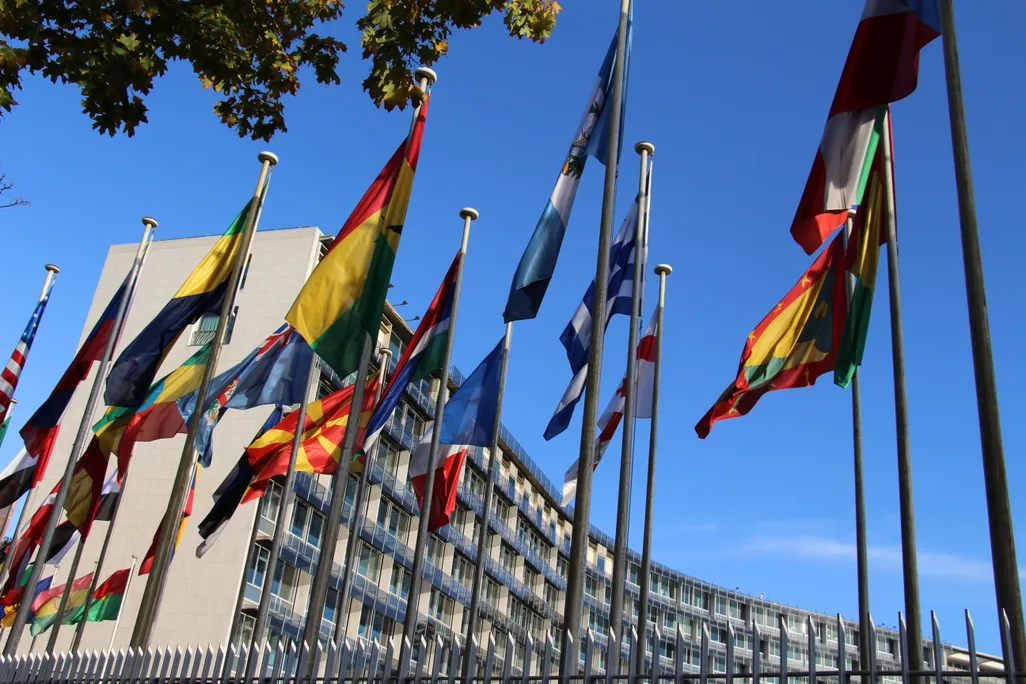The U.S. Is Withdrawing From UNESCO for the Third Time in the Agency’s 80-Year History
The country previously left the agency for two brief stints—once from 1984 to 2003 and again from 2017 to 2023. The newly announced decision will take effect by the end of 2026

The United States will once again pull out of UNESCO, the cultural arm of the United Nations. According to an announcement from the U.S. State Department, officials plan to cut ties with the agency by the end of 2026.
“Continued involvement in UNESCO is not in the national interest of the United States,” says Tammy Bruce, a spokesperson for the State Department, in the statement. Bruce asserts that UNESCO’s vote to admit Palestine as a full member in 2011 was “highly problematic” and “contributed to the proliferation of anti-Israel rhetoric within the organization.”
Audrey Azoulay, director general of UNESCO, denied the anti-Israel claims, arguing in a statement that they “contradict the reality of UNESCO’s efforts, particularly in the field of Holocaust education and the fight against antisemitism.”
“UNESCO has supported 85 countries in implementing tools and training teachers to educate students about the Holocaust and genocides, and to combat Holocaust denial and hate speech,” writes Azoulay, adding that the agency’s work has been “unanimously acclaimed” by leading Jewish organizations.
Following the announcement, the American Jewish Committee criticized the decision, arguing that UNESCO is “the only U.N. body with an explicit mandate to combat antisemitism and promote Holocaust education.”
Meanwhile, the World Jewish Congress praised the effort to address “longstanding bias against Israel” within the U.N., though it said it would continue working with UNESCO’s experts on “vital” initiatives “focused on combating antisemitism and promoting Holocaust education.”
Azoulay says that although she “deeply regrets” the Trump administration's decision to pull out of UNESCO, the agency has been anticipating and preparing for such an announcement.
Quick fact: When was UNESCO founded?
The U.S. was a founding member when UNESCO was formed in 1945, soon after the end of World War II.In recent years, UNESCO has worked to diversify its funding sources, allowing it to rely less on American contributions. U.S. funding now represents just eight percent of the agency’s total budget, according to the statement. In 2025, the U.S. is expected to contribute $75 million to the organization, reports the New York Times’ Aurelien Breeden.
“UNESCO’s purpose is to welcome all the nations of the world, and the United States of America is and will always be welcome,” Azoulay says. “We will continue to work hand in hand with all of our American partners in the private sector, academia and nonprofit organizations, and will pursue political dialogue with the U.S. administration and Congress.”
Headquartered in Paris, UNESCO has 194 member countries that work together to promote global peace and collaboration through education, science, culture and communication. The agency is best known for its list of World Heritage sites.
This is not the first time the U.S. has pulled out of UNESCO. In 1984, the Reagan administration cut ties with the agency, arguing that it was advancing the interests of the Soviet Union. The U.S. rejoined the agency nearly 20 years later in 2003, under President George W. Bush.
During the Obama administration, the U.S. cut funding to the agency after Palestine was admitted as a full member in 2011. In 2017, near the beginning of Trump’s first term, the U.S. withdrew completely.
Five years later, the Biden administration rejoined UNESCO and began paying dues for the years it was absent, which totaled more than $600 million. At that time, officials worried China might be filling the gap left by the U.S. Now, as America vows to pull out again, some lawmakers are expressing similar fears.
“This decision cedes more ground to U.S. competitors, especially China, who will take advantage of America’s absence to further shape the international system in their favor,” says Representative Gregory Meeks, the top Democrat on the House Foreign Affairs Committee, in a statement. “China will celebrate our empty seat at the UNESCO table as it seeks to gain an edge against the U.S. in artificial intelligence and other emerging technologies.”
During Trump’s second term, the U.S. has also pulled out of other U.N. agencies, including the World Health Organization and the U.N. Human Rights Council.

